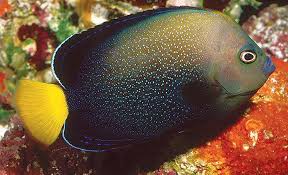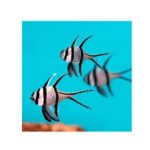
In Chinese culture, the dragon is more than just a mythical creature; it is a symbol of immense power, wisdom, and fortune. Across history, the dragon has been revered as a celestial being that governs the natural world, symbolizing the emperor’s authority, and embodying cosmic balance. But perhaps one of the most enduring places the dragon resides is in the poems of China’s great poets. From ancient classics to more modern works, the dragon has often been a central figure, representing themes of strength, good fortune, and celestial favor.
Chinese poetry, with its rich history and deep cultural resonance, has often used the image of the dragon to convey ideas that resonate deeply with readers. Whether it is the dragon’s association with the emperor’s rule, its connection to nature’s elemental forces, or its position as a harbinger of good luck, the image of the dragon weaves through the fabric of Chinese poetry, giving it meaning and depth. In this article, we will explore how dragons are depicted in some of the most famous poems in Chinese literary tradition, analyzing the symbolism of strength and good fortune that they represent.
The Cultural Significance of the Dragon in China
Before delving into its poetic representations, it’s important to understand the broader cultural significance of the dragon in Chinese society. In traditional Chinese beliefs, the dragon is a positive force, unlike its counterparts in other cultures, where dragons are often feared or seen as destructive. In China, the dragon is a symbol of strength, courage, and protection. It has a deep connection to the emperor, who was believed to be the “Son of Heaven,” representing the ultimate authority and divine approval. The dragon, with its association to the imperial throne, is a symbol of leadership and authority, and the strength it embodies extends to matters of governance, military might, and the harmony of the cosmos.
Moreover, dragons are believed to bring good fortune. In Chinese culture, prosperity and happiness are often attributed to the dragon’s benevolent power. The dragon’s mystical abilities, such as controlling the elements and governing water, represent the forces that bring abundance, fertility, and wealth. In this context, the dragon in Chinese poetry embodies the ideal of strength—both political and personal—while also serving as a beacon of hope for prosperity and success.
The Dragon as a Symbol of Power and Authority
The image of the dragon frequently appears in classical Chinese poetry, particularly in the works that exalt the emperor and his authority. Dragons symbolize not only the imperial power but also the cosmic order and balance that the emperor is expected to uphold. In these poems, the dragon often represents the divine approval of the emperor’s rule, suggesting that his governance is in harmony with the heavens and the natural order.
One of the most notable examples of the dragon in Chinese poetry is in the works of the Tang dynasty poet Li Bai (701–762). Li Bai, one of the most famous poets in Chinese history, often used natural imagery and celestial beings to convey larger themes of power and transcendence. His poem “The River Song” features an image of a dragon rising from the waters, symbolizing both the power of nature and the strength that it imbues in the poet’s own ambition. In this way, the dragon serves as a metaphor for the power and potential of the ruler, drawing from the natural world to reflect divine strength.
Another famous example is the poem “Ascending the Tower” by the Song dynasty poet Su Shi (1037–1101), in which the poet uses the image of a dragon soaring high to evoke the idea of ambition and imperial strength. The dragon’s ascent through the sky is compared to the poet’s aspirations, which aim to transcend the ordinary world and reach for greatness. In such poems, the dragon’s power is not just a symbol of physical strength but also of intellectual and moral superiority, reflecting the ideals of leadership and governance that were essential to Chinese political thought.
The Dragon and the Forces of Nature
Beyond its association with the emperor’s power, the dragon in Chinese poetry is also linked to the natural forces—particularly water and rain. As the ruler of water, the dragon is believed to have the ability to control floods, storms, and droughts, which are critical elements in an agrarian society. In many famous poems, dragons symbolize not only the power of nature but also the harmonious relationship between the heavens, the earth, and humanity.
One of the most famous poems to include such an image is “The Song of the Dragon Boat” by the poet Qu Yuan (c. 340–278 BCE), a patriotic poet of the Warring States period. In this poem, Qu Yuan describes a dragon boat race, invoking the image of the dragon as a symbol of both national strength and the connection between humans and nature. The dragon in this poem is not a distant, mystical creature but a vital force that drives the people forward, urging them to victory and guiding their boats through the waters.
The connection between dragons and water in Chinese poetry also extends to the myth of the Dragon Gate. According to legend, a carp that swims through the Dragon Gate waterfall is transformed into a dragon. This myth, often referenced in classical Chinese poetry, represents the idea of transformation and the ultimate ascent to greatness. The dragon’s ability to control the flow of water becomes a metaphor for the struggles and triumphs of life, where the journey to success requires overcoming obstacles and challenges. In this myth, the dragon is both a symbol of strength and a harbinger of good fortune, rewarding perseverance and determination.
The Dragon as a Harbinger of Good Luck and Prosperity
The association between the dragon and good fortune is a pervasive theme in Chinese poetry. As a symbol of celestial approval, the dragon represents the forces of destiny and prosperity. It is often invoked in poems that wish for wealth, success, and happiness. The dragon’s mystical connection to water also ties it to the fertility of the land, ensuring bountiful harvests and abundance.
In “The Dragon and the Phoenix”, a famous poem by the Qing dynasty poet Wang Shizhen (1634–1711), the dragon and the phoenix appear together as symbols of perfect harmony and prosperity. The poem reflects the belief that when these two mythical creatures unite, they bring blessings of wealth, health, and happiness. The dragon here is not just a symbol of personal power, but of collective well-being, a force that nurtures the land and ensures the happiness of all people.
Additionally, the dragon’s connection to good fortune is also evident in its presence in poems related to the Lunar New Year and other celebratory occasions. The dragon dance, a common practice during these festivals, is often referenced in poetry as a way of invoking good fortune for the coming year. In these works, the dragon is seen as a celestial being whose presence guarantees prosperity, luck, and happiness.
The Dragon as a Spiritual and Celestial Symbol
In many Chinese poems, the dragon is not simply a physical being but a celestial entity with spiritual significance. The dragon often represents divine forces, the heavens, and the cycles of life. Its depiction in such works elevates the symbolism beyond that of a mere creature to something that connects the human world to the divine.
One famous example of this celestial symbolism is found in the poem “The Eternal Dragon” by the poet Li Qingzhao (1084–1155), one of the most respected female poets in Chinese history. In this work, the dragon is portrayed as a celestial being that exists beyond time and space, symbolizing the continuity of life and the unchanging nature of the cosmos. This spiritual dimension of the dragon adds depth to its role as a symbol of strength and good fortune, suggesting that the dragon is an eternal force that connects humanity to the divine.
Conclusion: The Enduring Symbolism of the Dragon in Chinese Poetry
The dragon’s presence in Chinese poetry is a testament to its enduring cultural significance. From the imperial power it represents to its connection to natural forces and good fortune, the dragon serves as a multifaceted symbol that transcends the boundaries of mythology and literature. Through its appearances in famous poems, the dragon embodies strength, prosperity, and celestial favor, weaving a rich tapestry of symbolism that resonates with readers across generations.
As a symbol of power, the dragon represents the strength of the emperor and the divine mandate of rule. As a harbinger of good fortune, it brings prosperity and success to individuals and communities. And as a celestial and spiritual entity, it connects the human realm to the heavens, offering a glimpse into the cosmic order. In this way, the dragon in Chinese poetry remains a powerful and enduring symbol of strength and good fortune, reflecting the deep cultural values and beliefs that continue to shape Chinese society today.









